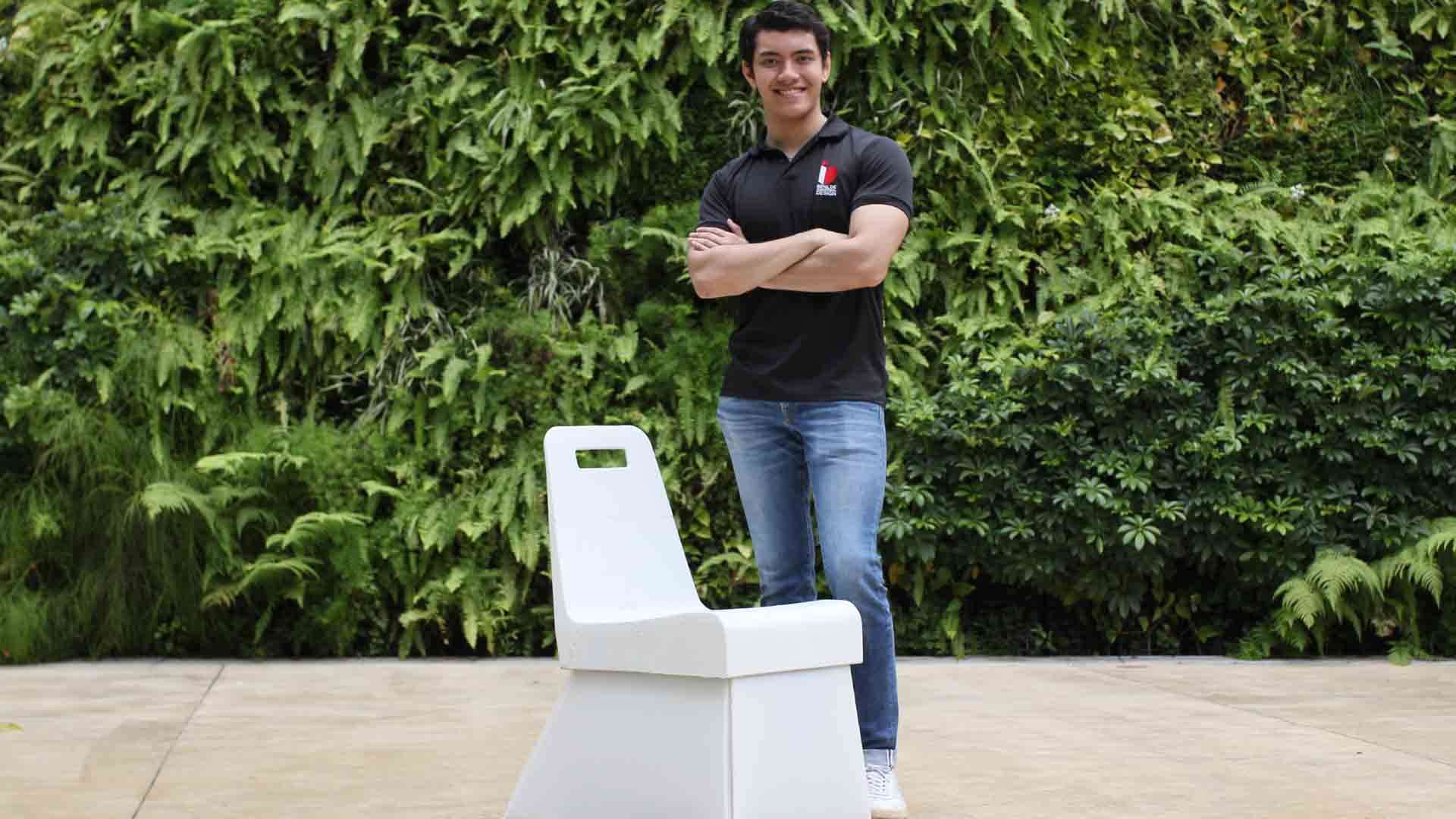The international James Dyson Foundation recognized young Filipino innovator Aleksander Wieneke for Noah, an indoor multi-purpose chair that transforms into a life-saving flotation device.
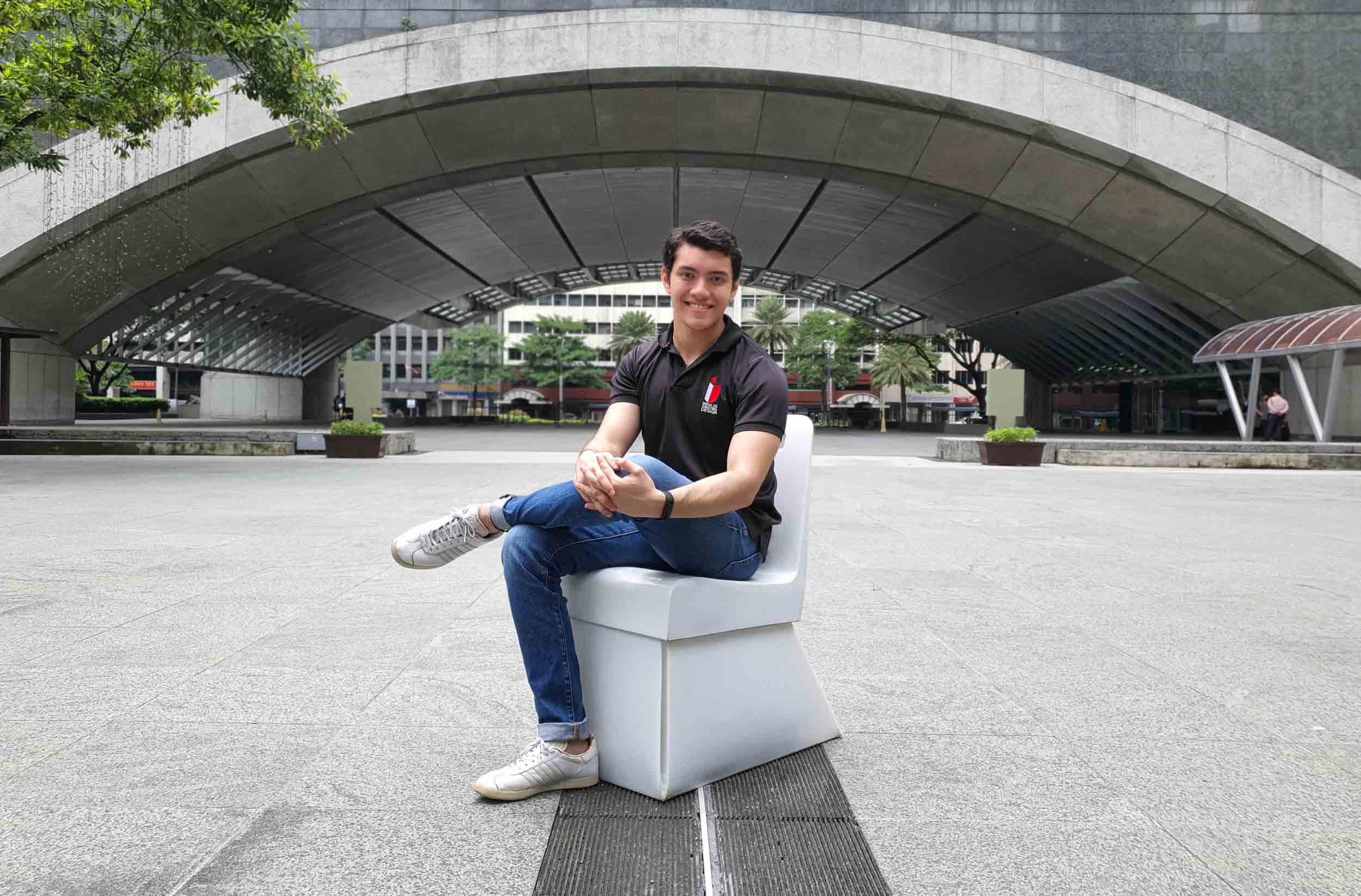
The charitable arm of the Singaporean multinational technology company Dyson, it acknowledged Wieneke as the National Runner-Up of the prestigious James Dyson Award, an international accolade that celebrates, encourages, and inspires young designers with new problem-solving ideas.
Wieneke’s emergency equipment aims to prevent drowning, ameliorate rescue operations and address a number of dangers associated with flooding such as illnesses, electrocution and stranding.
The inventor was motivated to provide an affordable and accessible way to address the issue, while he pursued his thesis under the Industrial Design Program of the De La Salle-College of Saint Benilde.
“Floods are the most frequent natural disaster and are expected to increase in frequency and severity due to climate change,” Wieneke explained. “Drowning accounts for 75% of deaths. But victims also experience limited mobility, sickness, slow emergency response, damaged belongings, stranding and so forth. Yet, most do not own emergency equipment.”
“I found that the low-middle income bracket is most affected,” he added. “They do not own adequate emergency equipment and refuse to move houses. Existing products are too costly, intrusive, or inaccessible. A flotation device is what they need.”
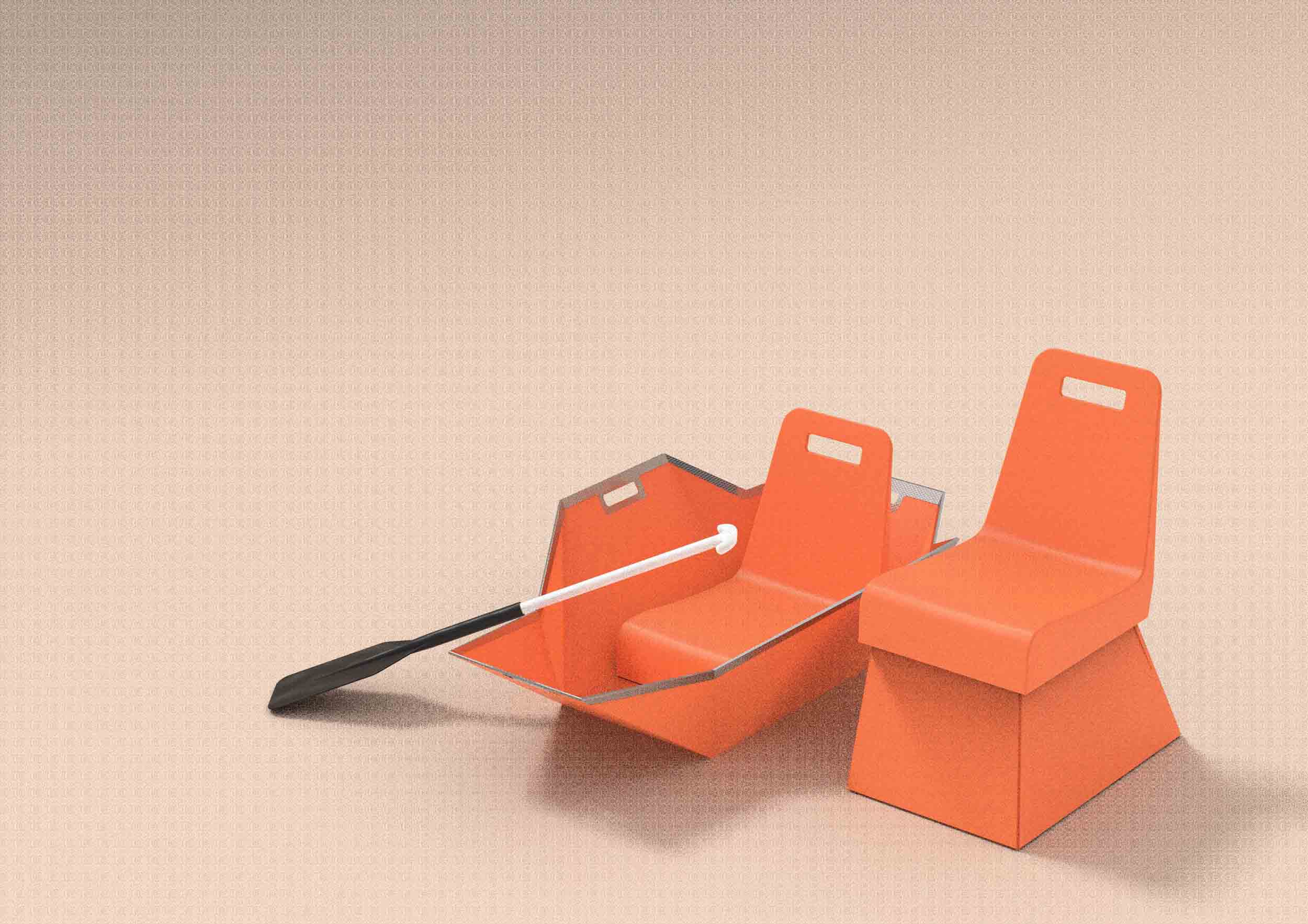
The production of Noah included a meticulous process that encompassed comprehensive research as well as interviews with victims of the calamities, emergency professionals and design consultants. The finished product is low-cost, recyclable, electrically insulated, chemical resistant, abrasion-resistant and anti-impact, a sturdier alternative to an inflatable.
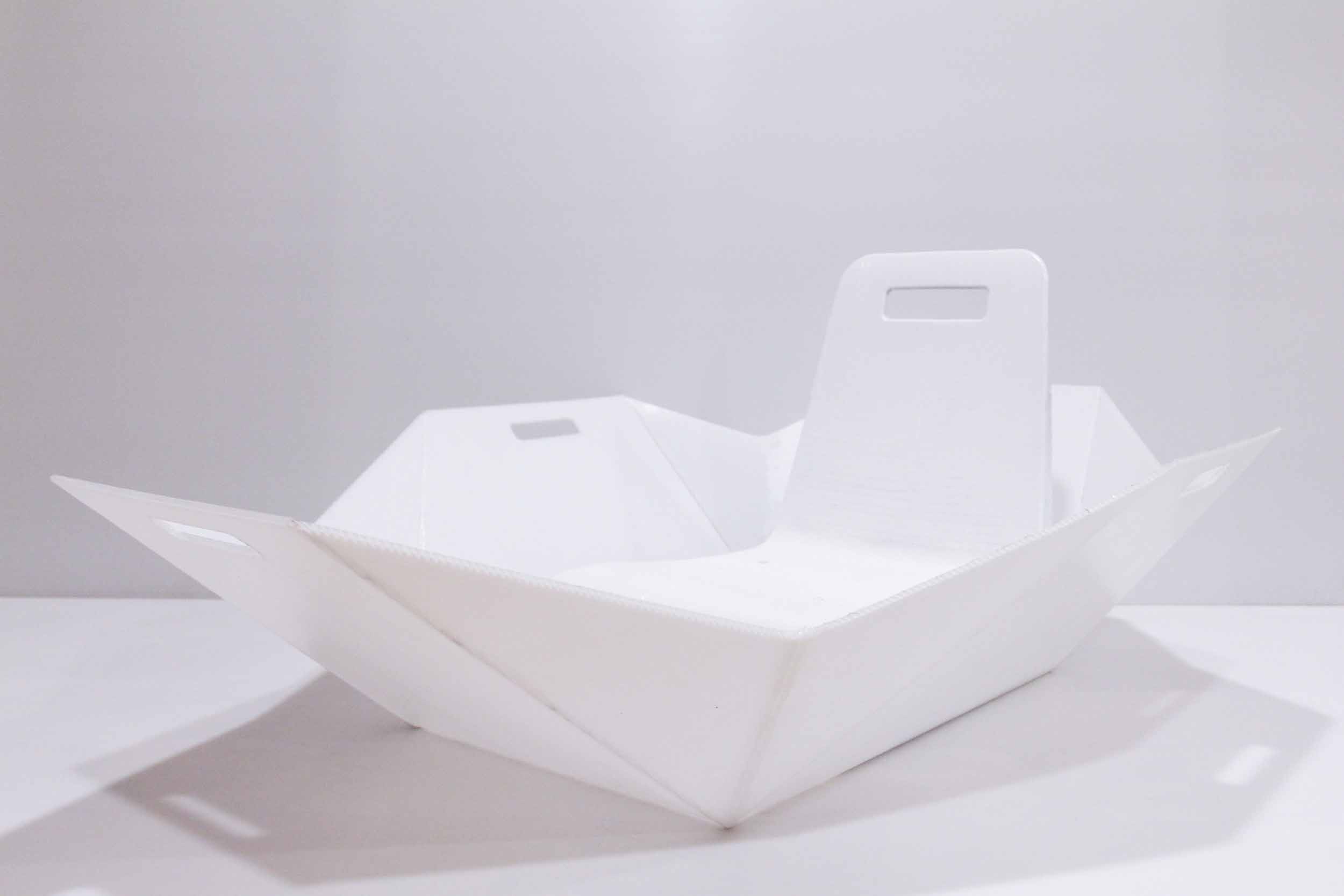
Noah was designed to hold most body types. It features reflective tape for visibility, a paddle with a bow hook and proper storage system for emergency supplies and first-aid kits. There are also handles on all four sides to grip onto, attach a cord, or link multiple rafts together.
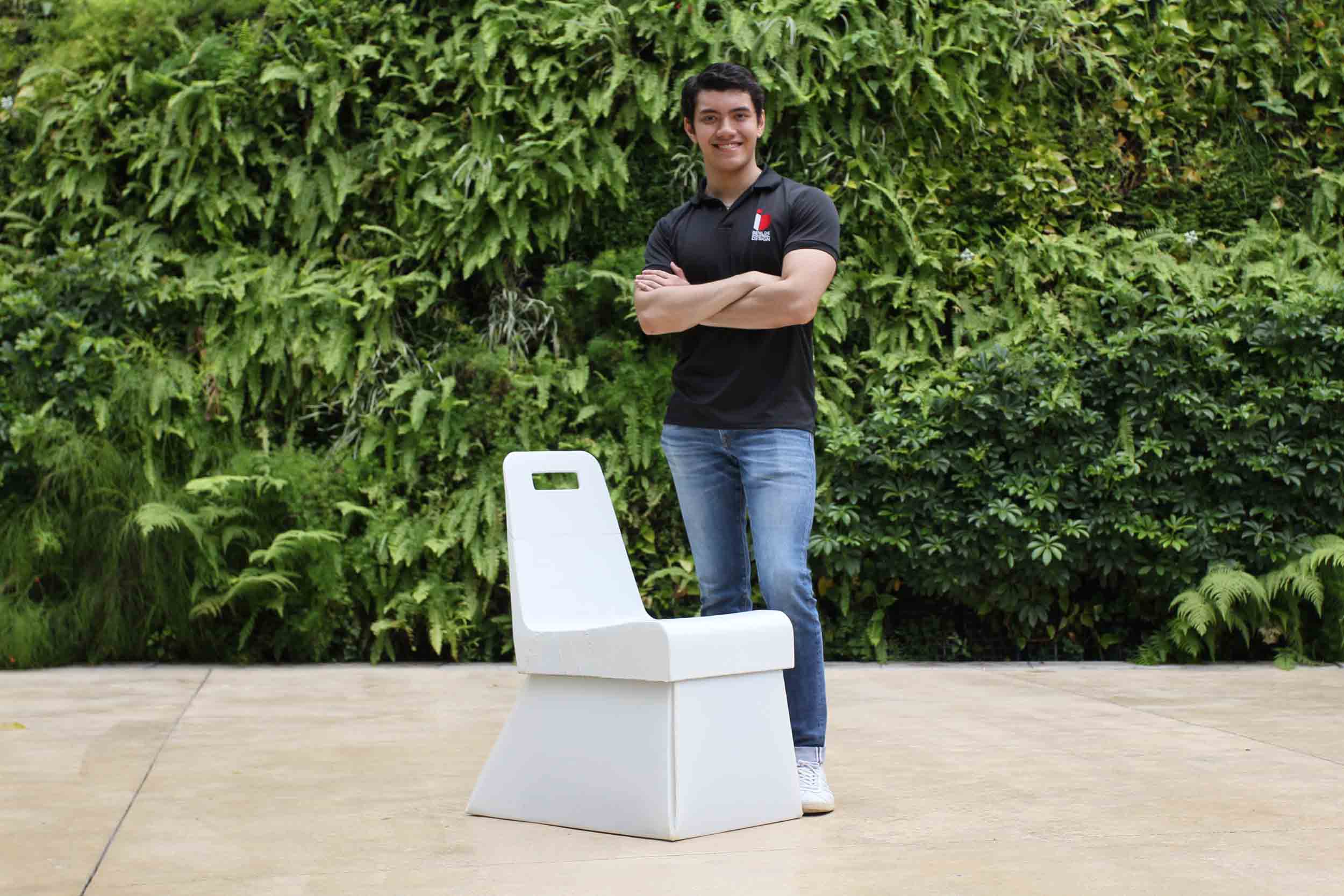
“This makes disaster response more proactive on the household level. When considering real-world household limitations, a chair is more compact, affordable than large furniture, and commonly used.”
For more information about Noah, visit https://www.jamesdysonaward.org/2022/project/noah/.





